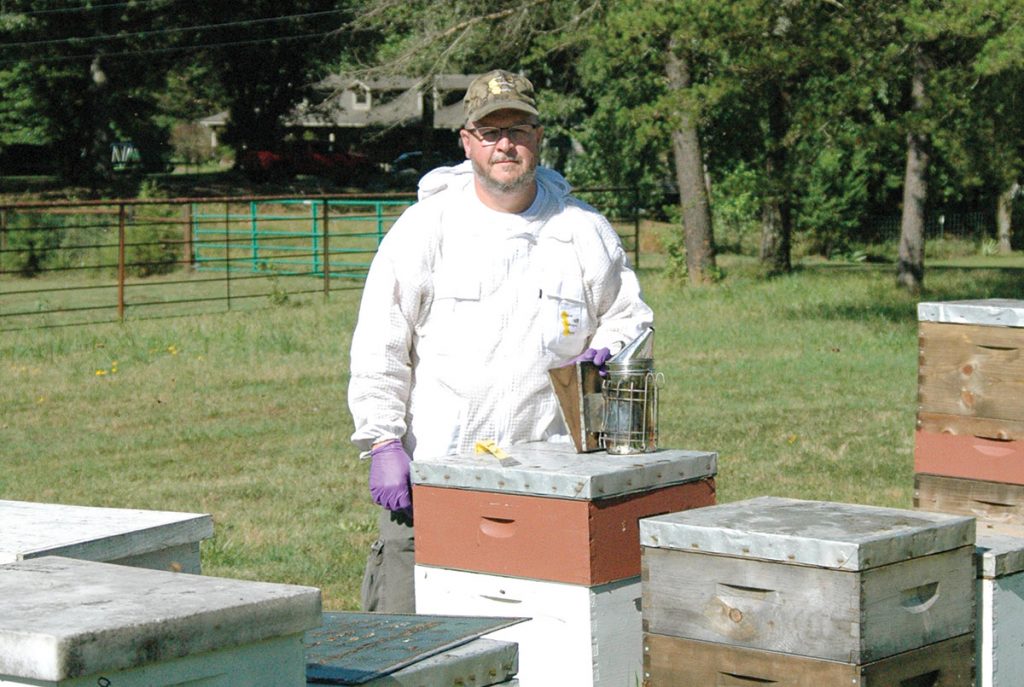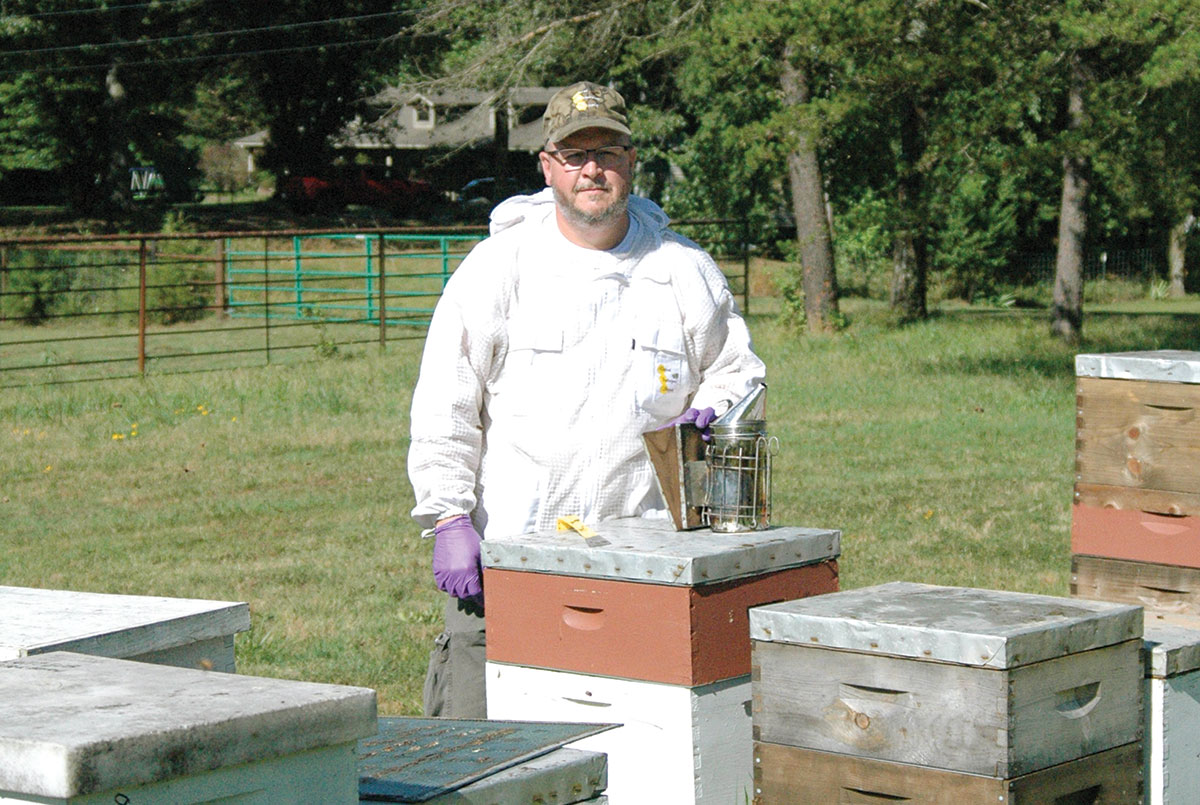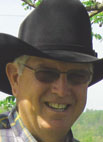
Danny Brewer improved his operation with pollinators
Danny Brewer from Van Buren, Ark; was introduced to the idea of beekeeping in 2011, but it wasn’t for the honey.
Retired from the U.S. Air Force in 2008 at the age of 38; he decided that he would start homesteading.
“We had all kinds of animals and a garden, but my garden wasn’t producing like it should have been. We did all kinds of soil testing and finally my father-in-law, who used to be a beekeeper, said ‘Boy, you need more pollinators in your garden,’” Danny recalled.
Danny visited with a seasoned beekeeper with a brand new hive that he had painted. “He kind of laughed at me, but he put bees in it for $90,” Danny said. After that, Danny started catching swarms and by the end of the season had three hives, which expanded to eight by the next year and thirteen the next.
“Last year, I had 50 hives, so I’ve doubled that this season.” He has around 115 hives, nucleus boxes and mini mating boxes and has plans to keep growing. He sells honey locally and next year plans to offer nucleus hives and queens for sale.
In 2017, during a hive inspection by one of the two state bee inspectors from the Arkansas State Plant Board, the inspector recommended he apply for the position that he would soon be leaving. Danny got the job and loves it. He spends his work hours travelling the northern half of the state inspecting hives and catching swarms to ensure the state insect’s population, both feral and farmed, are healthy and thriving.
“This used to be garden,” he said motioning to a large swath of cleared land. He said that he made the decision to focus on growing the bee aspect of his business and did not plant a garden this year, rather, he barters his honey to neighbors that have gardens. However, he still has shrubs and fruit trees, as well as blackberry cultivars that provide nectar and pollen. He said that they particularly like the Vitex.
“Right now they seem to be bringing in plenty of nectar,” Danny said, pulling up a new frame of foundation that he had added to this particular hive only two days before that was nearly full. “But it’s going to get really dry soon so I’ll move them down by the river and they will get going again.”
Pest and Disease Management
He rotates mite treatments to prevent resistance and temperature sensitivity, using Apiguard in the spring, Apivar, in the fall and Oxalic acid fumigation as needed. He warned against tempting hive beetles into the hives with “wet comb” after honey extraction.
As with all forms of farming, problems do arise. Checking hives regularly and treating when necessary is critical to keeping colonies healthy. He stressed that treatment without knowing what is going on in the hive can be harmful. “The key is being able to diagnose what’s wrong.”
Hive Health
To prevent or limit the spread of disease, Danny uses a whole yard approach. “I’ve recently started leaving a hive tool at each yard and changing out 7 mil nitrile gloves yard to yard during hive checks.”
Although the bees can sting through them, using new gloves each time has several benefits, the thinner style allows more dexterity so the beekeeper doesn’t smash as many bees, they don’t get sticky with built up propolis, and they won’t have the retained odor of venom that agitates a colony when it’s being checked.
Danny also said changing out old brood comb for new is critical. “That comb acts like a sponge.” To prevent pathogens and pesticides building up over time, he recommends brood comb be replaced every three years.
For his hives near crop land, Danny places them near, rather than in the center, of the fields. This offers some protection from pesticides and allows the bees to gather nectar and pollen from a variety of sources to improve nutritional value of their foraging.
Migratory Beekeeping
“In late winter and early spring, migratory beekeepers send their hives on a cross country journey to almond fields in California,” Danny explained. The hives are graded by a broker and loaded onto the truck. The colonies are rented to the farms for a fee, and brought back home in time for nectar flow or sent to other farms where they are needed. Other beekeepers move their hives to local farms.
This spring, Danny placed several hives at Randy Arnold’s strawberry farm in Alma. The bees got to work quickly on the early flowering plants. The bees were then removed before the farm was opened to the public for picking.
Advice to new beekeepers
“Educate yourself first, and get a good mentor. A mentor will help with more than just teaching, he said. They can also help buying equipment in bulk to help reduce the cost of getting started.” Many areas have a local bee club that can help you find a mentor. The University of Arkansas also maintains literature on the state’s apiary laws and other helpful information.
Danny has served as president for the Western Arkansas Eastern Oklahoma Beekeepers Association and is also a member of the Crawford County Beekeepers Association. He is frequently seen at Central Beekeepers Supply and has had displays at various farm and garden shows around the area.







